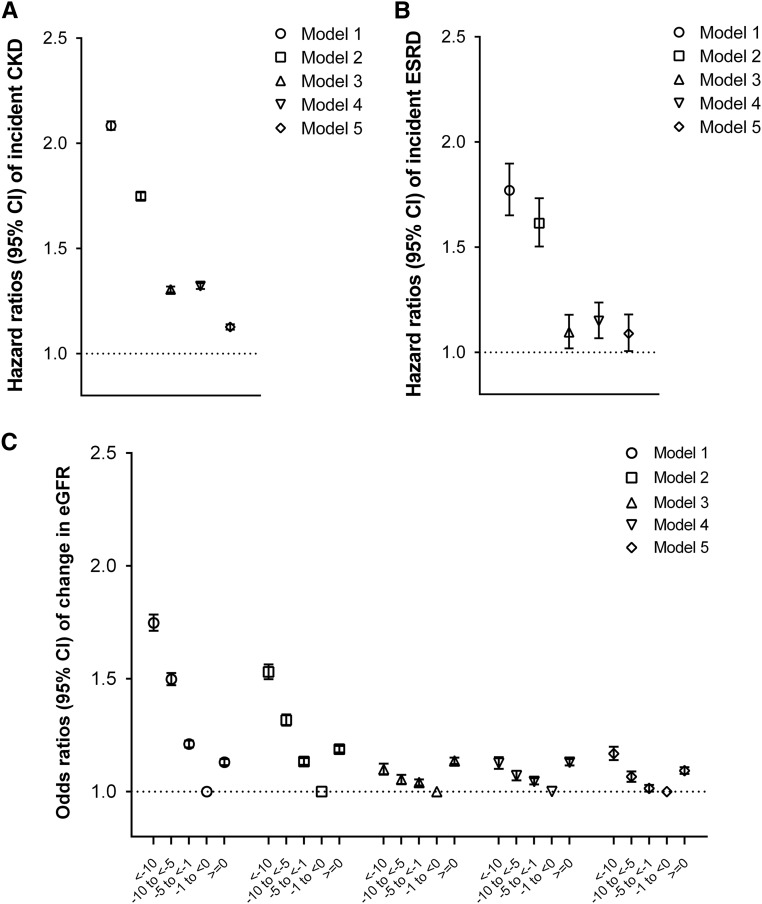Figure 2.
Association of the presence of constipation with renal events. (A) Incident CKD, (B) incident ESRD, and (C) change in eGFR. The presence of constipation was associated with higher incidence rates of CKD and ESRD and faster eGFR decline, compared with the absence of constipation. Estimates were calculated using Cox proportional models (for incident CKD and ESRD) and multinomial logistic regression models (for change in eGFR). Models represent unadjusted association (model 1) and associations after adjustment for age, sex, race, and baseline eGFR (model 2); model 2 variables plus comorbidities (diabetes mellitus, hypertension, CHD, congestive heart failure, cerebrovascular disease, peripheral arterial disease, peptic ulcer disease, rheumatic disease, malignancy, depression, liver disease, chronic lung disease, HIV/AIDS, and bowel disorders; model 3); model 3 plus baseline body mass index, systolic BP, and diastolic BP (model 4); and model 4 plus socioeconomic parameters (mean per capita income, marital status, service connectedness, housing stress, low education, low employment, and persistent poverty), number of VA health care encounters, cumulative length of hospitalization, receipt of influenza vaccination(s), and use of angiotensin–converting enzyme inhibitors/angiotensin II receptor blockers, statins, antidepressants, nonopioid analgesics, and opioids (model 5).

